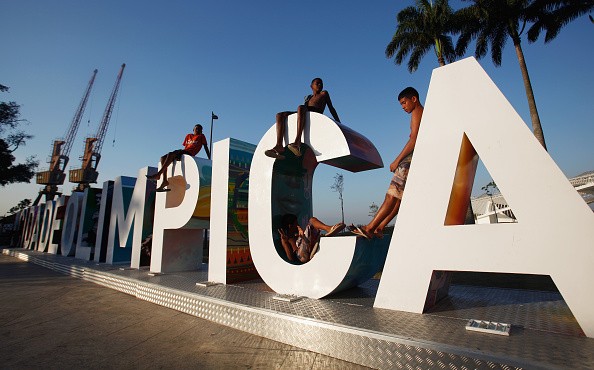Travelers and competitors at the 2016 Olympic Games in Brazil are not likely to contract the Zika virus during their stay or bring it back to their home countries, Yale University experts contend in a new report.
Fear of the mosquito-borne virus has led to more than a dozen athletes drop out of the 2016 Olympic Games which start Aug. 5 in Rio de Janeiro citing fears of spreading the Zika virus.
According to Health Day, U.S. cyclist Tejay van Garderen withdrew from Olympic consideration because of the potential effects Zika infection could have on his pregnant wife. And a number of golf stars -- including Jason Day, Rory McIlroy, Dustin Johnson, Jordan Spieth, Adam Scott, Louis Oosthuizen and Vijay Singh also declined to participate.
The new study from researchers at Yale University finds that the international sporting event poses little risk of increasing the transfer of the virus around the world. In the study, out of as many as 500,000 travelers to Rio for the games, estimates state that at most 37 people are likely to contract Zika and return home while still contagious, said study co-author Gregg Gonsalves.
"Yes, Zika is a serious disease, but transmission linked to the Olympics and ParaOlympic Games is not a substantial public health threat and policy should be guided by this fact," said Gregg Gonsalves.
Gonsalves is co-director of the Global Health Justice Partnership, a joint program of Yale Law School and Yale School of Public Health in New Haven, Conn.
He added that the study, published Monday in Annals of Internal Medicine, supports similar findings by the World Health Organization and the Centers for Disease Control and Prevention, Los Angeles Times reported.
The researchers began by assuming a worst case scenario - that athletes and other visitors in Rio for the Olympic Games are just as likely to contract the disease as local residents.
Based on current models of Zika transmission among residents of Brazil, the authors calculated that a visitor's chance of acquiring the virus ranges from 1 in 6,200 to 1 in 56,300. That translates to between 6 and 80 total infections expected among the hundreds of thousands of people attending the Olympics.
But those numbers tell only part of the story. The Zika virus does not hang around in a person's body forever. Studies suggest that it will naturally clear out of the human system in about 10 days.
Therefore, the authors also estimated the total number of days that Olympic attendees could transmit Zika after returning to their home country. In the paper, they call this "person-days of viremia."
The authors write that 53.3% of Olympic attendees are expected to come from the United States, Canada, Europe, Oceania, Japan, South Korea and Israel, contributing an estimated 14.9 to 192.2 total person-days of viremia. However, the overall risk of mosquito-borne transmission is low in these countries, the authors write.
Some public health advocates have expressed fears that the international gathering will facilitate the spread of Zika to the African continent, but the authors note that travelers returning to African countries make up a significantly smaller percentage of Olympic attendees. Therefore, they expect only 1.1 to 14.5 person-days of viremia among this group.
Most of the remaining travelers are expected to return to Latin American countries that are already experiencing ongoing Zika transmission. The authors say the Olympics will have no noticeable effect on the disease in this region.
Have a look at the Rio Olympic 2016 here:



























